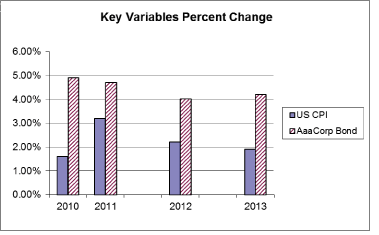
Capitol News
February 2012
January saw the beginning of the new income tax changes enacted last year, the Governor’s State of the State address, the Revenue Estimating Conference, and filing of campaign finance reports. Doug Drake, recognized fiscal whiz and one of two retiree representatives on the State Employees’ Retirement System Board, has authored a summary of the Revenue Estimating Conference (see below). Basically, Michigan has turned the corner economically the pundits say! Michigan government has an unexpected surplus of $457 million last year and it will have $633 million more to spend in FY 2012 and FY 2013, according to the agreed-upon numbers from the Conference. About $80 million of the surplus will be used to pay for the Michigan Supreme Court’s decision to overturn part of the new income tax law. Based on estimated revenues, the Governor’s proposed budget will be rolled out on February 9.
One veteran capitol observer commented that this year’s State of the State was the most content-free one he had witnessed in 30 years. The media declared it boring because the Governor did not propose anything controversial such as last year’s announcement that the Governor supported the international bridge. Referencing an outline rather than reading a speech, the Governor listed several issues he wants to address in 2012:
- Government accountability: The governor wants to promote greater accountability and transparency in government by enacting reforms to Michigan's campaign finance, lobby and ethics laws. For example, the Governor is seeking changes that prohibit a person who has decision-making authority over a contract from working for the company to which they let a contract. He also advocates increasing the frequency of campaign finance disclosures from all sources such as political action committees, ballot question committees and candidate committees.
- Crime: The cities of Saginaw, Flint, Detroit and Pontiac are among the nation's top 10 in violent crime, which Snyder called unacceptable. In March he will deliver a special message to the Legislature on public safety that focuses on increasing law enforcement and improving the operation of the criminal justice system.
- Health care: Snyder renewed his call for legislative approval of the MiHealth Marketplace program, an online, market-based program that will help people make more informed decisions when selecting health care insurance. Snyder cautioned that the alternative is a federally mandated program designed by people who don't live or work in Michigan. A health care insurance exchange is required by the federal Affordable Care Act but the House wants to wait until a Supreme Court decision is issued concerning a challenge to the law.
- Autism: Without treatment, the average lifetime cost to Michigan for a person suffering autism is $3.7 million. Since there now are medically proven treatments available for autism. Snyder said Michigan should join the 27 other states that require insurers to cover evidence-based therapies for autism.
- Energy and environment: This fall Snyder will deliver a special message to the Legislature on energy and the environment. It will address the intersection of job creation, affordability, science and sustainability.
- Taxes: The governor supports reform of the personal property tax on industrial assets, while preserving funding for communities. The current tax structure hampers long-term job growth he said, but a way to replace the $1.2 billion the PPT produces must be found.
- Infrastructure: Snyder urged that hearings on bills that will create a system of roads and bridges for the future be held. Michigan is underinvesting in its transportation infrastructure by $1.4 billion studies show. The bills propose a combination of an increase in the gas tax by 3 cents and an increase in vehicle registration fees. He also urged support for a bus rapid transit system to serve Southeastern Michigan.
- New International Trade Crossing: Snyder again urged action on the proposed NITC because it is vital to Michigan's economic future. The NITC will be built without Michigan taxpayer dollars the Governor said, and that got a standing ovation from members of both parties.
- Global talent: Snyder welcomed the support of Michigan universities and the Michigan Regional Council of Carpenters and Millwrights, the Operating Engineers Union, and the Teamsters to encourage immigration changes at the federal level so that immigrants with advanced degrees or who are entrepreneurs can create jobs in Michigan.
- Communities: Snyder is recommending additional funding for the Economic Vitality Incentive Program, which promotes regional cooperation.
The pension tax and other tax law changes went into effect on January 1. The Office of Retirement Services was busy implementing pension tax withholding and taking some heat from the 60 to 66 year old state retirees for not building into the process the $20,000 (single filer) or $40,000 (couple filing jointly) exemption that age group receives. The Michigan Department of Treasury reports that only 5% of their calls are about withholding right now, but that is likely to increase as people go to their tax preparers in the next few months and get the bad news about the increased 2012 tax bite. Senior Economist Joanne Bump at the Michigan League for Human Services authored a paper calculating that the new Michigan income tax changes increase the tax liability of low income taxpayers by 1 percentage point and increase the tax liability of higher income taxpayers by merely .001%!
January 31 saw the deadline for campaign contribution reports, the first in a 14 month hiatus that our weak state campaign finance law allows. Officeholders raised $5.9 million: $3.5 million by Michigan Representatives, $1.6 million by the 38 Michigan Senators, and $832,000 by the Governor, Secretary of State and Attorney General. Term-limited Senate Appropriations Chair Roger Kahn raised the most money among legislators: $188,299. The Governor raised $346,300 and was reimbursed $825,000 of his $6 million personal loan to his 2010 primary campaign. The reports revealed that the owners of the Ambassador Bridge and their wives gave the Michigan Republican Party $100,000 on September 28, just before enabling legislation for a new bridge between Detroit and Windsor that would compete with the Ambassador Bridge was nixed in the Senate Economic Development Committee. You can examine campaign contributions on the Secretary of State Web site at www.michigan.gov/elections.
The legislative drumbeat continues for making Michigan a right-to-work state, i.e. prohibiting mandatory union membership dues in labor contracts. HB 5023 – 5026 that would require annual approval for collection of union dues and increase fines for picketing and strikes were reported out of House Oversight Committee recently. RTW bills have not been introduced yet but are expected soon. Governor Snyder testified before a Congressional Committee on February 1 that RTW legislation is not on his agenda and he opposed it for 2012. Although Indiana’s recent adoption of RTW legislation emboldened RTW advocates in Michigan, the Governor of Wisconsin is facing a recall because of his advocacy for RTW and Ohio voters recently repealed their new RTW law at the ballot box.
News of the Day — If you are a SERA member, you are eligible to receive News of the Day, a periodic e-mail about breaking news and media stories of interest to state employees and retirees. Write to michigansera@comcast.net giving your name and chapter.
Editor’s note: Mary Pollock is the newly appointed Lansing SERA Chapter and SERA Council’s Legislative Representative. She may be contacted at 1200 Prescott Drive, East Lansing, MI 48823-2446; Phone 517-351-7292; E-mail michigansera@comcast.net.
Summary of 2012 Consensus Revenue Estimating Conference
By Douglas C. Drake*, Public Policy Consultant
By statute the Revenue Estimating Conference is held at least twice a year, in January and May, and sometimes more often if needed. Key legislative and executive economists and invited others come together to examine the outlook for the US and Michigan, and what that may mean for state revenue collections. By law the Governor’s budget is to be based upon the revenues agreed upon by the participants (Directors of the Office of the Budget, House Fiscal Agency, Senate Fiscal Agency, and the State Treasurer) plus other available funds such as prior year surpluses.
Presenters this year included forecasters from the U of M (whose forecasting model is also used by state officials), IHS Global Insight (an outside private forecaster under contract to the state for economic advice), and the staff economists for the Treasurer and the two legislative fiscal agencies. This year’s conference also had a presentation by a staffer for the National Conference of State Legislatures on their perspective of possible federal budget impacts on the 50 states.
All the presenters had different areas of emphasis and slightly different assessments of the risks to the forecasts, but all generally agreed that both the US and Michigan economies are definitely on the road to recovery. All generally saw a steady but modest recovery, and all noted a number of risks to that recovery.
For the US economy, the forecasters see modest inflation (a bit more nationally than in Michigan), and relatively flat interest rates, with somewhat more volatility in Corporate Bond rates. They also see a slow but steady improvement in the housing market with new starts rising from less than 600,000 we’ve seen in 2010 and 2011, to 873,000 in 2013. This increase, while good, is still far short of what would be considered as “normal” or “strong” levels of 1 million or 1 million plus.
Auto sales show a similar steady and slightly faster rate of improvement to 14.5 million in 2013, but this is still far short of the numbers of a little more than a decade or so ago that were in the high teens and touched 20 million. Perhaps more important than the level of sales, the outlook is for the Detroit 3 to finally begin to increase market share after decades of declining share — a major reason for Michigan’s struggles since the 1980’s.
State government revenue outlook is positive also, but the growth is modest, with the growth rate offset to some degree by the major business tax cuts enacted in Governor Snyder’s first year that were not fully offset by the tax increases on pension and other income received by seniors, and cut in the EITC (earned income tax credit) for the working poor. School Aid Fund revenues in fact decline in FY 2012, pulling combined SAF and General Fund/General Purpose revenues into the red. And the continued impact of the tax cuts keeps the growth at very modest levels for FY 2013 as well. Some additional spending will be possible due to FY 2011 improving more quickly than expected, generating somewhat larger surpluses than were expected when the budget was revised earlier last year.
*Also Chair, State Employees’ Retirement System Board representing retirees, and advisor to SERA on the economic impact of the pension tax.
 |
 |